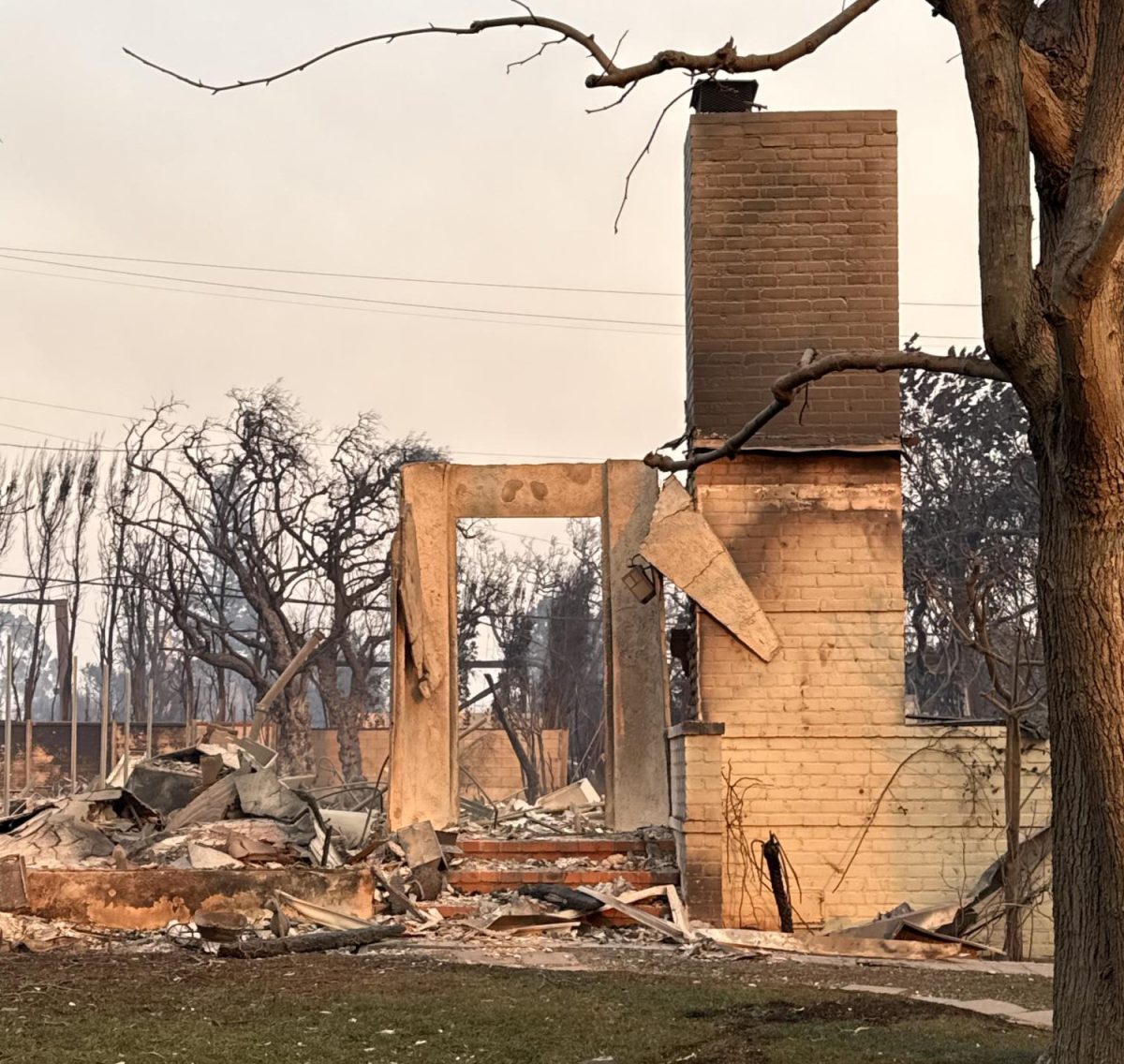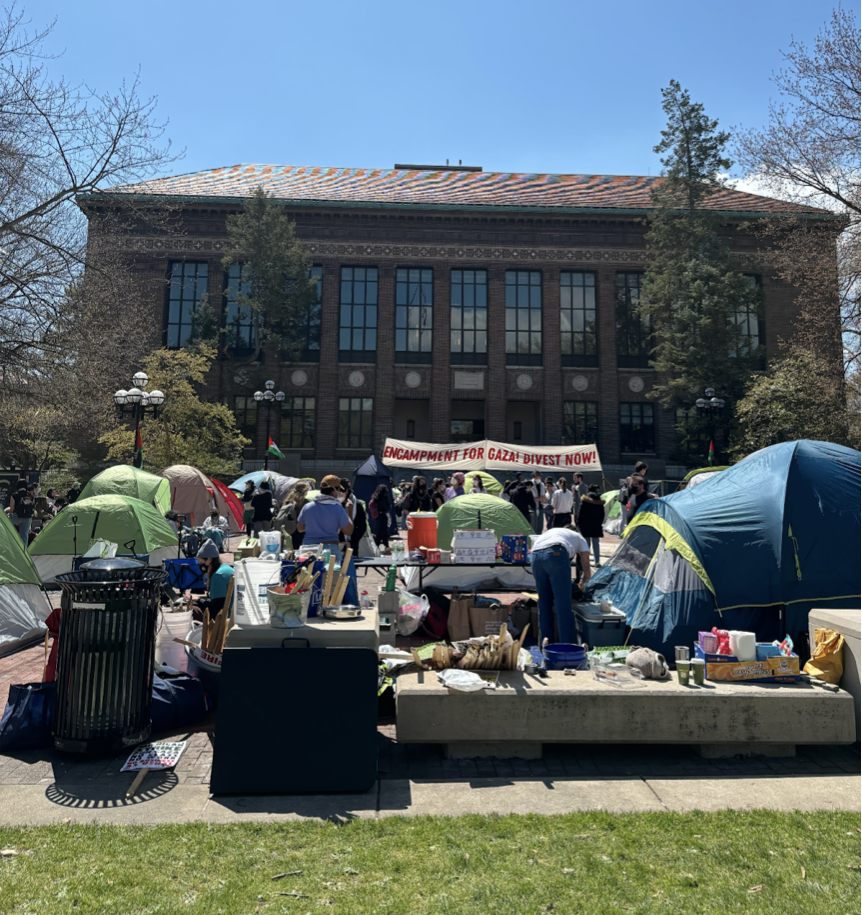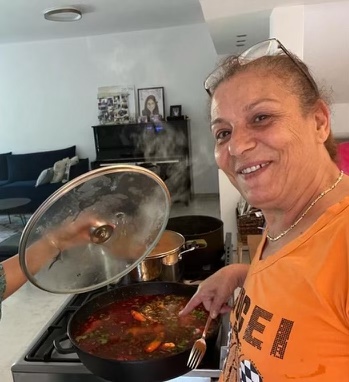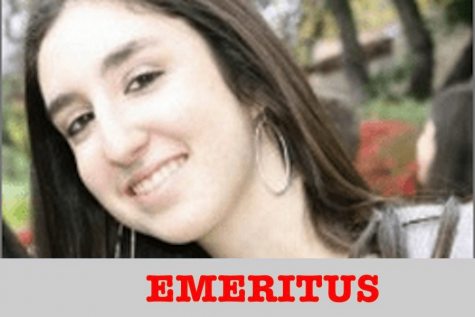Most teenagers don’t have to explain to their classmates that they aren’t terrorists and are not related to Osama Bin Laden, but the youth group members of the Islamic Center of Southern California sometimes face that challenge.
“Muslims don’t really have a good name here,” said Dunya Dosk, a Muslim teenager who has part of the mosque’s youth group for the last two years.
“When I say I’m from Afghanistan, they immediately go to the terrorist jokes. I sometimes think I take it too personally.”
“I don’t know Osama Bin Laden and I think he’s a terrible person,” added Mona Ghannoum, who also belongs to the group. “It’s just ignorance.”
Growing up in Los Angeles with diverse Middle Eastern roots, the estimated 40 youth group teens who consistently come to the youth group sessions balance the social pressures of high school with their own cultural and religious practices. The girls’ emphasis on modesty, proper conduct at parties and parent-approved dating draws attention from classmates, as does daily prayer, keeping hallal, and fasting during Ramadan.
But while self-conscious and sensitive to jibes about their religion, the girls welcome questions about Islam and answer them with a smile. (See related story by clicking here.) The youth group helps them gain confidence in their answers.
“I think the discussions and what the adults contribute teaches us a lot about the facts of Islam that we never really knew about,” said Dunya. “So sometimes collecting views or information about Islam that we learn can be taught or passed on to a non-Muslim with a similar question.”
She added that the youth group is “a safe environment and everyone knows everyone and we are all friends in one way or another and sometimes you feel like a family with people.”
A blue building with towering white arches, the Islamic Center is located at 434 S. Vermont Ave. near West 4th Street in the mid-Wilshire area of Los Angeles. Established in the late 1950s, it’s the oldest Islamic center in Southern California and holds daily prayer services, an Eid carnival after Ramadan, and interfaith events. It has around 1000 families that come from a wide variety of countries in the Middle East and South Asia.
According to the Center’s website, the mosque follows the Koran as the sole source of Islam and does not take into account the hadith, narrations which can offer interpretations. The website (http://tinyurl.com/BPIslamicCenter) also said it condemns all acts of terrorism, and does not identify itself with any Islamic sect such as Sunni, Shiite, or Wahabi. Men and women share equal roles in organizing the Center’s affairs.
“This mosque is pretty accepting,” said Mona. “In some mosques, they split the men and women completely. This mosque doesn’t do that because it’s not very realistic or helpful.”
The youth group was formed 30 years ago and meets at the mosque every Sunday from 11 to 1, except on Muslim holidays. Sessions are held in an upstairs room sparsely decorated with Islamic posters with Koranic sayings. Boys and girls wear casual jeans and short or long-sleeved tops, and a minority of the girls wear a hijab, a head-scarf that completely covers one’s hair and neck.
According to Nathan Richardson, the youth group’s coordinator since July 2009, most of the teens, who range from eighth grade to high school age, are first-generation Americans and don’t attend Islamic schools.
Social activities include two retreats every year – not unlike Jewish NCSY Shabbatons.
“We went to the mountains and had activities and speakers and had to wake up every morning for praying,” said Dunya, describing October’s retreat to the San Bernardino Mountains. “It was a nice way to break away from society and be with Muslims.”
The youth group also has held interfaith days with Christian and Jewish groups, including Beth Shir Shalom synagogue in Santa Monica, and community service activities – packing backpacks for underprivileged kids, and organizing homeless feedings and beach cleanups.
According to Mona, the group also helps her in dealing with non-Muslims.
“I don’t want to lose my connection with Muslims themselves,” she said. “It gives you a sense of confidence in who you are and the tools to go out into the world.”
Those tools are needed, they said, because outside of the youth group, the teens have to deal with various challenges of being Muslim in school – including the occasional playful but hurtful teases of their classmates. Terrorist jokes are offensive and are whenever possible immediately answered.
“My friends joke about it [Islam] a lot,” said Dunya, a junior at Burbank High School, recalling that even in elementary school, classmates would tell her that she was related to Osama bin Laden.
“It gets really annoying,” she said, even though they tease her and then say, “We’re kidding, we love you!”
The girls say that they oppose all terrorist attacks, and don’t recognize “super extremists” like members of Al Qaeda as being Muslim.
“We don’t consider those people Muslim, we consider these people fanatics that claim to be Muslim but have no idea what they’re doing,” said Nour Chaaban, a junior at Kennedy High School from Lebanon.
She said the Koran says that if you kill one innocent person it’s like killing the entire world – a sentence that is also found in the Gemara, in Tractate Sanhedrin 37a – and moreover, that you can only attack someone else if they attack you first.
“In our prayer services we say ‘Help those who suffered in 9/11,’” said Mona. “I say, ‘Just help those who are affected by it – Muslims, Buddhists, atheists, anyone.’”
They consider informing their friends and peers about Islam the most effective way to erase misconceptions.
“It’s our job to correct them,” said Dunya. “It’s teaching them that we’re not that bad.”
Nour said that she started crying in her AP World History class last year when her teacher gave a lecture on how Islam doesn’t give women rights.
“I didn’t want to say anything because he was my teacher,” she said. “He shouldn’t be teaching kids info so they can grow up and hate other people.”
Nour started a Muslim Student Association at Kennedy High School last year. This was, she said, probably one of the best experiences she’s had talking about Islam with other teens.
“The goal is to get rid of the misconceptions about Muslims and add diversity to the school,” she said.
Mona Ghannoum is now a freshman at Alverno High School, an all-girls Catholic school, but she attended an Islamic middle school and performed at a Daniel Pearl World Music Festival concert with its choir. She also went to an interfaith camp last summer. Like Nour, Mona enjoys conversing with other teens about religion.
“Today I was at the library and when I was done with my shift I talked to students about God and atheism, and they asked questions about Islam,” Mona said.
Mona could have gone to a Muslim high school, but decided against it.
“There is an option – I didn’t want to go to it,” she said. “At one point you feel you don’t know anything about anyone else.”
Apart from having to confront misconceptions, the teens encounter abundant opportunities to explain Islam.
“I was fasting, of course, and no one knew why and they thought I was going on a hunger strike,” said Mona, recalling last September’s Ramadan. “I told them, and they were like, ‘Oh my God, you’re Muslim.’”
At first her friends felt uncomfortable eating around her, but she told them that she was fine with them eating.
“They had me explain the whole story of Ramadan – it was really awesome,” she said. “And then they asked other questions, like why we wear the headscarf.”
Indeed, the first thing the girls say they are always asked by classmates is why they aren’t wearing “the head thing” — the hijab. They said that it represents a commitment to Islam that a girl undertakes when she is ready.
“Socially, if you put on the hijab, you’re labeled as a Muslim,” said Mona, who will wear one when she is older and settles down. “It’s a sacred promise…You become more humble and modest after you put it on. I tell my friends – it’s not to oppress women, but more to praise them.”
But they still take modesty seriously. Mona’s school uniform includes a mid-thigh-length “short” skirt, so she wears tights instead of socks under it.
Some of the girls also observe halal, Muslim dietary restrictions which exclude eating pork or meat from animals that were improperly slaughtered, and forbid drinking alcohol. Kashrut has the additional restriction of not eating the sciatic nerve, but any meat that is kosher is also okay according to halal.
“At school, for the lunches, there’s always pepperoni pizza,” said Mona. “They ask why I’m not eating the pepperoni, and I say that Muslims can’t eat pork.”
Kosher meat can be an option if halal meat is inaccessible. And the girls are also aware that other food may contain pork products.
“We link more towards the kosher,” said Nour. “Like marshmallows. If it’s kosher it’s better.”
Keeping up with Islam’s five daily prayer times can be tough for the girls, especially since the afternoon prayer is during school hours. But some of them wake up for the prayer that’s at dawn.
“I go to a Christian girls school, so it’s kinda awkward,” said Mona, who wakes up at 5 A.M every morning to pray.
“The majority of the days I pray two or three times because I can’t stop what I’m doing,” she said, explaining that homework or other activities get in the way.
Several of the youth group’s girls have tried to pray in school, which can be an uncomfortable experience. Maryam Nouh, whose parents are from Egypt and Iraq, is a senior at La Canada High School and says she sometimes gets lonely when she prays in the nurse’s office.
“I can’t make it on Friday for the service,” said Nour. “School is more important. I tried to pray at school in the library, but it’s just awkward, so I don’t.”
Like Mona, she gets up early for the dawn prayer.
“That’s one of my favorite prayers because it’s in the morning, the beginning of your day. It opens up your mind,” she said.
The Koran also prohibits the girls from drinking or smoking.
“Islamic law is you can’t consume anything that changes your state of mind and you cannot consume anything that will harm your body,” said Nour.
This is something the girls seem to take seriously.
“I stay away from drinking and smoking because of Islam,” said Dunya. “I wonder if I wasn’t a Muslim, would I be out partying? I try to look at it like it will benefit me in the future.”
Dating is also not taken lightly.
“Muslim girls wouldn’t date till they’re older and looking to get married,” said Nadia Nasr, a youth group member whose parents are Egyptian and Mexican and who plans to start dating in her early 20s after college. “You wouldn’t take a date to homecoming because we’re still young.”
To some, an arranged marriage, or an emphasis on parental approval of a marriage, is a cultural value.
“It’s not that I can’t go to parties, I have been to parties, [but] as I grow up I noticed I’m not going to go dance with a guy,” said Nour. “With dating I would say that the parents should be involved and my parents should be for the marriage.
In their homes in L.A, some of the girls have Middle Eastern-style furniture, including Persian rugs, chairs from Syria, and Arabic calligraphy prints on the walls with passages from the Koran. They may eat traditional foods with an American twist, listen to Arabic music and order traditional Islamic clothing from countries like Afghanistan for celebrations.
“We have our home set up like it would be in the Arab world,” said Mona. “[On posters] we have verses from the Koran and certain prayers – fatiha, the main Koranic surah [chapter] that we read. We have chairs from Syria and oil paintings and in my parent’s bedroom the lining on the side is an Arab print.”
One traditional food, taboule, consists of parsley, chopped tomato, and soup seasoned with lemon and olive oil. Mona’s mother also makes meat and kabob, and if they’re making pasta, she’ll use an Arab sauce.
“When my mom came here to America, she got divorced and took classes and became an independent woman,” said Dunya, who sometimes eats Afghani food at home. “She told me, ‘you can’t do that in Afghanistan. If you’re divorced, you’re nothing.’”
Although the girls are deeply Muslim in their beliefs and values, they are American teenagers too.
“I’m Lebanese, I was born there,” said Nour, calling it the “Paris of the Middle East.”
She speaks Arabic at home, listens to Arabic music, and eats traditional Lebanese food. “I’m more American than I am Lebanese. I would like to go back, but I’d never live there.”
Although the girls said they may have to deal with Islamic misconceptions in college, they’re confident that they’ll handle it the way they always have.
“I’m going to try and pray there,” said Dunya. “If I ever have a roommate who is racist maybe they can learn from Islam.”
Nour echoed the same idea.
“I’m one of the people who aren’t scared of being Muslim,” said Nour. “My friends all know and they ask me questions.”
Related: Student-organized picnic forges Muslim-Jewish friendships
Related: Online from afar, LA Muslim teens back Egyptian protests









Sustainable Dave • Jan 6, 2011 at 10:21 am
Fantastic piece and a subject that deserves a good deal of attention. Yasher Koach!